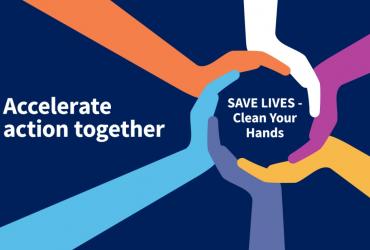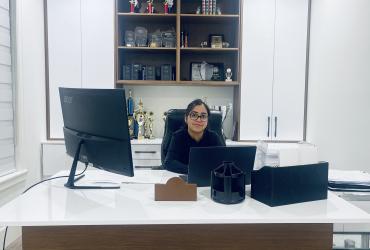Advice for Future Students
My advice for future students looking to work with the BC Public Service (BCPS) would be to split your efforts between focusing and excelling in the project or task that was assigned to you, getting involved, and knowing your rights.
Focus on the task
When I first started my co-op with the Ministry of Forests, I felt the need to learn everything all at once (especially with the heavy BCPS onboarding session during the first month), network, and make an impression right from the start. It sometimes felt overwhelming to try to meet these milestones (set by myself) and seek validation to make sure that I am contributing to the team. I remember my academic mentor giving me really good advice at the time by saying, "Okay. You made yourself known. Now put your head down and focus on your research, which is what you were hired for. Everything else [relationships, contribution, impact] will come with time". It was an important reminder for me to take one step at a time and to appreciate the gradual process of learning, and relationship-building - all of which are heightened through a positive mindset, active listening, and an open mind.
Get involved
Get involved - yes, yes, yes! Don't shy away from activities and collaborative events. These are such great opportunities to meet other students, who are going through similar experiences and get inspiration. Don't feel pressured to contribute, sometimes its more rewarding to sit back and listen to other people's experiences. But also, don't feel shy to ask questions. The event organizers are extremely friendly and welcoming. All thoughts are taken on board.
- Co-op Advisory Board: A board comprised of a group of co-op students (up to 20) that provide input to improve the experiences of co-op students in the provincial government. Joining the board is a low commitment! We used to meet virtually every two weeks from all over the Province to brainstorm, share ideas, and network. No preparation was required. I have met a lot of cool co-op students and we even had the opportunity to gather in Vancouver one time.
- Training: For avid learners, great news! The BCPS offers a whole website with self-paced training, workshops, and events (e.g., "Our Shared History" on Indigenous history in BC, "Building Indigenous Competencies", "Story Harvesting"). The BCPS also offers co-op-specific training, which is so useful for career and personal development. My personal favorite was learning about competencies that are essential to working with the BCPS and how to communicate your competencies in interviews. It was a hands-on session that I hope to apply when I interview for future jobs.
- Competitions: Depending on the Ministry you are working for, there are plenty of fun competitions to get staff involved in. At the Ministry of Forests (Surrey), a Learning for Reconciliation Team hosted a winter-themed photo competition that required participants to submit a caption of an Indigenous word and a short description of why the word resonates with them. I submitted the picture attached to this blog and actually won the competition this year (yay!).
Know your rights
Finally, know your rights. As a co-op student with the BCPS, you are entitled to some of the benefits that are bargained under the BCEGU collective agreement. These include:
- Working additional hours to be entitled to a flex-day (a day that you can take off typically on a Friday/Monday every two weeks).
- Working additional hours to accumulate "earned time off" (ETO). ETOs usually accumulate to approximately three days if you are signed onto the 8-month term.
- 15-minute breaks in the morning and afternoon, which can be used for walks and rest periods.
Make sure to check with your supervisor if you have any questions!
Above all, enjoy the learning process and approach the experience with a proactive and positive mindset. Wishing you all the best!















